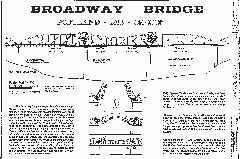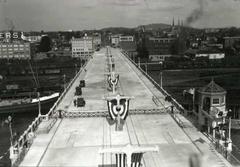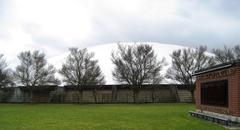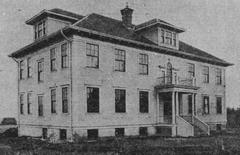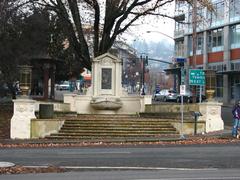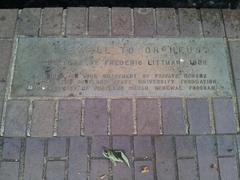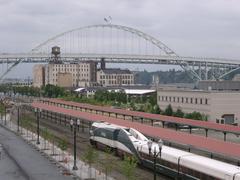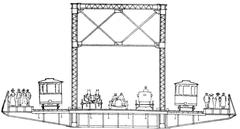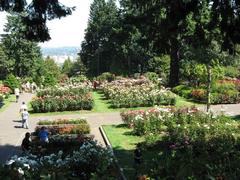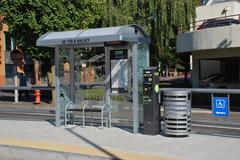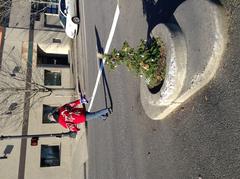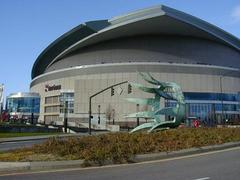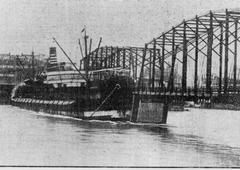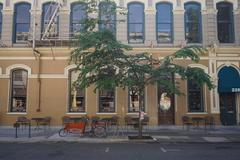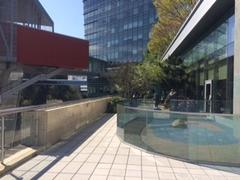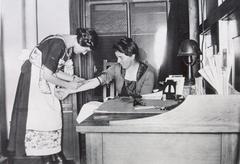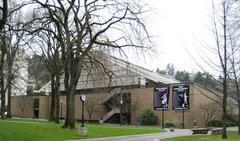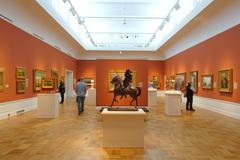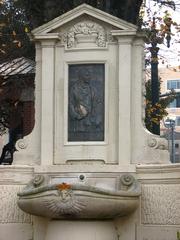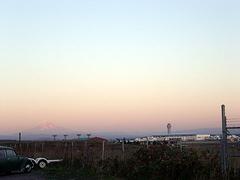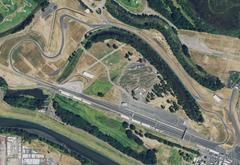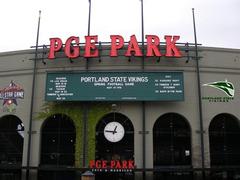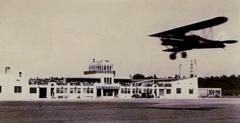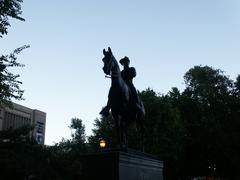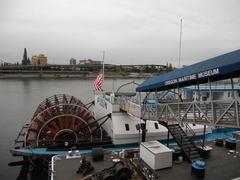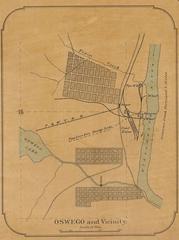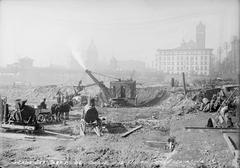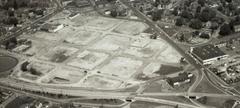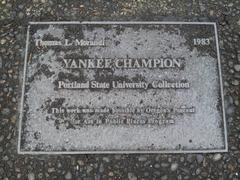Sacajawea Park Visiting Hours, Tickets, and Portland Historical Sites Guide
Date: 04/07/2025
Introduction: The Significance of Sacajawea Park in Portland
Sacajawea Park, located in the heart of Portland, Oregon, stands as a vibrant tribute to the extraordinary legacy of Sacagawea—the Lemhi Shoshone woman whose guidance was critical to the Lewis and Clark Expedition from 1804 to 1806. More than a scenic urban green space, the park honors the deep-rooted Indigenous heritage of the region, particularly the ancestral lands of the Multnomah, Clackamas, Chinook, and other tribes. With interpretive signage, public art, and community events, Sacajawea Park offers a unique opportunity for visitors to engage with the complex narratives of Native American communities in the Pacific Northwest.
Open to all daily, the park welcomes families, history enthusiasts, and nature lovers alike with its paved paths, accessible playgrounds, and native plant gardens. Whether you are interested in exploring the stories of intercultural cooperation that Sacagawea symbolizes, seeking recreational amenities, or participating in educational programs, Sacajawea Park provides an enriching, inclusive experience that reflects Portland’s diverse cultural fabric.
This detailed guide covers everything you need for your visit—from hours and accessibility to history, events, and nearby attractions—ensuring a memorable and meaningful experience. Official resources such as Portland Parks & Recreation, the National Park Service, and the Lewis and Clark Trail Experience provide further visitor tools and historical insight.
Table of Contents
- Introduction
- Early History and Indigenous Significance
- The Lewis and Clark Expedition’s Impact
- Commemoration and Park Establishment
- Cultural Legacy and Modern Significance
- Notable Features and Artistic Installations
- Visiting Sacajawea Park: Hours, Tickets, and Accessibility
- Travel Tips and Nearby Attractions
- Special Events and Guided Tours
- Visitor Experience and Interpretive Opportunities
- FAQ
- Conclusion and Call to Action
Early History and Indigenous Significance
Sacajawea Park is named for Sacagawea, born circa 1788, whose role as interpreter and guide was vital to the Lewis and Clark Expedition. Long before Portland’s founding, this land was inhabited by Native peoples such as the Multnomah and Clackamas tribes, who flourished along the Willamette and Columbia Rivers through fishing, trade, and seasonal gatherings. Sacagawea’s story embodies resilience and intercultural cooperation, symbolizing the essential contributions of Native women to American history (NPS.gov).
The Lewis and Clark Expedition’s Impact
Commissioned by President Thomas Jefferson, the Lewis and Clark Expedition set out to chart the Louisiana Territory and find a route to the Pacific. In 1805, the Corps of Discovery reached the confluence of the Columbia and Willamette Rivers, near present-day Portland. The journals of the expedition detail important encounters with local tribes, often enabled by Sacagawea’s multilingual abilities and diplomatic presence. This period marked a turning point, fostering future migration, trade, and Euro-American settlement in the Pacific Northwest (Lewis and Clark Trail Experience).
Commemoration and Park Establishment
The establishment of Sacajawea Park honors both Portland’s diverse history and Indigenous contributions. The 1905 Lewis and Clark Centennial Exposition in Portland introduced a notable statue of Sacagawea and her son, Jean Baptiste Charbonneau, crafted by Alice Cooper—this was one of the earliest major monuments in the U.S. to honor a Native American woman (NPS.gov). Today, the park serves as a living memorial and a community hub for reflection, education, and cultural events.
Cultural Legacy and Modern Significance
Sacajawea Park continues to highlight the ongoing presence and cultural heritage of Indigenous communities. Educational programs, interpretive signage, and public art help visitors understand the nuanced history of Sacagawea, the Lewis and Clark Expedition, and the experiences of Native peoples. Events such as Indigenous Peoples’ Day, storytelling, and art installations promote cultural awareness and reconciliation, fostering a spirit of learning and community engagement.
Notable Features and Artistic Installations
Although Sacajawea Park does not house a large interpretive center, it features open green spaces, a modern playground, walking paths, native plant gardens, and educational kiosks emphasizing local ecology and history. Nearby, the Sacagawea statue in Washington Park—listed on the National Register of Historic Places—remains a popular attraction for those interested in the broader legacy of Lewis and Clark (NPS.gov).
Visiting Sacajawea Park: Hours, Tickets, and Accessibility
- Visiting Hours: Open daily from 6:00 AM to 10:00 PM.
- Admission: Free for all visitors.
- Accessibility: The park is wheelchair accessible, with paved paths and accessible restrooms.
- Parking and Directions: Ample street parking is available; the park is easily reached via public transit, with several bus lines serving Northeast Portland.
Travel Tips and Nearby Attractions
Plan for comfortable walking with proper shoes and water, especially in summer. Nearby attractions include the Oregon Historical Society and the Portland Art Museum, both offering exhibits on regional history and Indigenous cultures. The Sacagawea Heritage Trail and the Confluence Project’s “Story Circles” by Maya Lin provide additional educational opportunities (Lewis and Clark Trail Experience).
Special Events and Guided Tours
Sacajawea Park periodically hosts guided tours, cultural festivals, and educational workshops. These are often facilitated in partnership with local schools and Indigenous organizations. For event schedules, consult Portland Parks & Recreation or local event calendars.
Visitor Experience and Interpretive Opportunities
Interpretive signage, self-guided walking tours, and community-led events help visitors explore the park’s historical and cultural themes. Displays and art installations provide context about Sacagawea, the expedition, and the Indigenous peoples of the region.
Frequently Asked Questions (FAQ)
Q: What are Sacajawea Park’s visiting hours?
A: Open daily from 6:00 AM to 10:00 PM.
Q: Is there an admission fee?
A: No, access to Sacajawea Park is free.
Q: Are guided tours available?
A: Periodic tours and events are held; check local listings for details.
Q: Is the park wheelchair accessible?
A: Yes, the park includes paved paths and accessible facilities.
Q: When is the best time to visit?
A: Spring through fall offers the most pleasant weather and active programming.
Conclusion and Call to Action
Sacajawea Park is a vital space where Portland’s history, culture, and community intersect. Whether you are exploring the legacy of Sacagawea, participating in community events, or simply enjoying the park’s natural beauty, your visit supports the preservation and celebration of Indigenous heritage.
Plan your visit today and explore more of Portland’s historical sites and cultural events with the Audiala app. Stay updated by following us on social media and consulting official resources for event information and travel tips.
Visuals and Resources
- Incorporate high-quality images of Sacajawea Park’s statue, green spaces, and events with descriptive alt tags (e.g., “Sacajawea Park statue Portland”, “Sacajawea Park playground”).
- Access maps and virtual tours via Portland Parks & Recreation.
External Links
- NPS Sacagawea Statue
- Lewis and Clark Trail Experience
- Portland Parks & Recreation
- Oregon Historical Society
- Portland Art Museum
- Wikipedia: Sacajawea Park
- Travel Portland
- Sacajawea Interpretive Center
- Sacajawea State Historical Park
References
- Visiting Sacajawea Park in Portland: History, Hours, and Attractions, 2025, Portland Parks & Recreation (NPS.gov)
- Lewis and Clark Trail Experience, 2025 (Lewis and Clark Trail Experience)
- Sacajawea Park Visiting Hours, Amenities, and Family Guide in Portland, 2025 (Portland.gov)
- Sacajawea Park Portland Visitor Guide: Visiting Hours, Tickets, History & Attractions, 2025 (Travel Portland)
